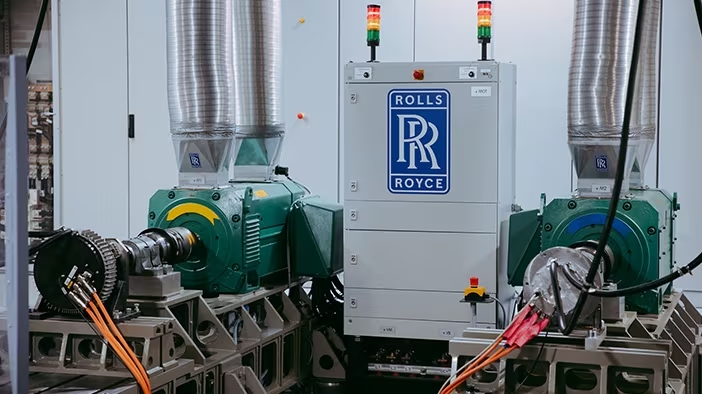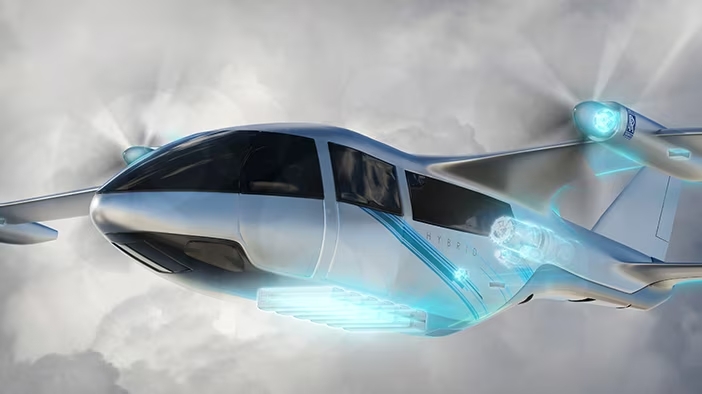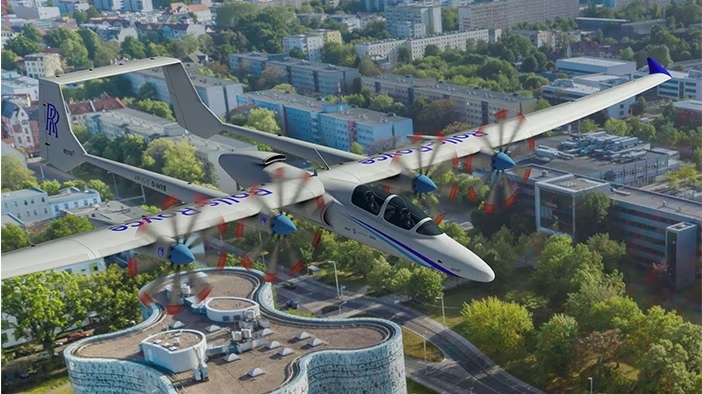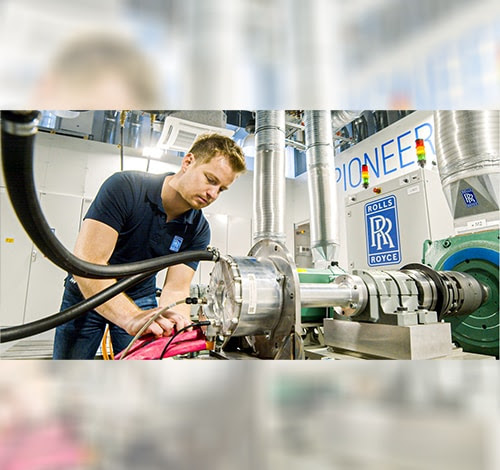The research powering electric flight
UK, April 19. At Rolls-Royce, we recognise the world-class academic research that universities around the globe are undertaking to further innovation and help us through the energy transition.
Today, we work with 28 University Technology Centres (UTCs) and research centres worldwide that tackle a wide range of engineering disciplines – from combustion and aerodynamics to noise and manufacturing technology. We also have close relationships with further universities and research institutes around the world to advance our technology as we look to transform the way that people travel.
UTCs supporting electrical aviation
Exploring the possibilities of all-electric and hybrid-electric aviation is vital to delivering a sustainable future for our societies. To achieve this, project leads within our Electrical Business are focused on multiple areas of development – from Urban and Regional Air Mobility solutions to turbogenerator engine capabilities that enable aircraft to fly for longer on a single electrical charge.
Our UTCs play an important role in helping us get there. Today, we have four Electrical UTCs, three in the UK; Manchester, Sheffield and Strathclyde and one in Singapore; part of the Corporate Lab at Nanyang Technological University. Alongside this, we are increasingly working with other Rolls-Royce UTCs, such as the Technical University of Cottbus on the APUS i-5 hybrid-electric flight project and we’ve developed collaborations with other universities near our global Electrical sites for example, the Norwegian University of Science & Technology.
Our links to the various universities don’t just provide academic support, they are also an important part of our talent pipeline. For example, we’re sponsoring a student team at the Technical University of Munich in developing a drone for rescue missions, which has already led to the successful intake of highly talented young engineers.
By combining the research and knowledge of multiple institutions working in similar areas through a University Technology Partnership (UTP) or cluster, we can harness collective talent and accelerate our progress. For example;
Bridging the gap to new technologies
For product and project leads, UTCs can play an important role in helping roadmap technologies for future products. From concept to certified product, our leads need to know when and how each stage of development will be achieved. Often, this means identifying gaps in knowledge and opportunities for enhanced efficiency.

By bringing in our university partners to gather insight into product readiness, they can help the business to more accurately forecast when new technology will be in production and ultimately when it can go to market.
Right now, for example, universities and research centres across the world are exploring the potential of superconductivity for hybrid-electric aircraft. This method of power generation involves cooling an electric motor to its superconductive state, while a carbon-friendly liquid gas such as ‘green’ hydrogen is used for combustion.
Not only would this reduce carbon emissions in the air, but it could also deliver enormous amounts of power, delivering a step-change in how we design and develop electrical machines. While the technology won’t be ready for another few years, our research centres play an invaluable role in enabling it.
Supporting product development
Universities’ speciality expertise also helps as we get closer to the launch of Electrical products for the Advanced Air Mobility market. They can support our development projects by assessing our Rolls-Royce engineers’ power and propulsion component designs from specific angles.

Universities like TU Dresden, for example, bring their expertise in the field of lightweight optimisation and help us to reduce the weight of structural mechanical parts. We then integrate these findings in further design iterations to get to the optimal product.
Providing a testbed for electrical technologies
For over a decade, the team in Hungary have worked with the Budapest University of Technology on numerous research and development projects that have helped to boost the growth of our engineering presence in the region.
Having recently opened a new hybrid electric propulsion system laboratory, our 100 engineers are able to develop and test hybrid-electric drive technologies while supporting other members of Hungarian industry and higher education in building the foundation for sustainable, electrical solutions of the future.

Equally, a testbed for system integration is also being developed in collaboration with the Technical University of Cottbus and other partners to test multiple electrical machines combined into a system. Publicly funded, CHESCO (Centre for Hybrid Electric Systems Cottbus) at the BTU Cottbus-Senftenberg aims to research the reduction of climate-damaging emissions and economically strengthen the region of Lusatia.
Our Rolls-Royce Electrical engineers are helping to design a lab environment that will enable the specific requirements of flight system testing. The lab will then serve as a test bench for future integrated power systems such as Vertical Aerospace’s eVTOL VX4, based in the UK.
The innovators of tomorrow
Our UTCs and partner universities can also provide a crucial talent pipeline. Every year, Rolls-Royce dedicates a portion of technology development budgets towards sponsoring PhD students around the world.
Not only do these opportunities enable us to carry out leading-edge research projects that advance our technological capabilities in specialist fields. They also allow us to form relationships with innovators, engineers and researchers early in their careers and help to power their progress. Frequently, these students go on to join the business and play important roles within Rolls-Royce.
Beyond research
The value of our long-term partnerships doesn’t end there. While our Electrical team is focused on developing the technologies to power all-electric and hybrid-electric flight, our partnerships within other areas of the business provide the specialisms in mechanics, materials and manufacturing that, when combined, bring this vision to life.
Alongside this, we have access to state-of-the-art university testing facilities that enable us to ensure the operability, safety and efficiency of our technologies.

For the Electrical business, the UTC programme opens up new opportunities to work with interdisciplinary teams from the most reputable universities around the world at the forefront of research and development in the fields of all-electric and hybrid-electric aviation and megawatt aerospace engineering.





